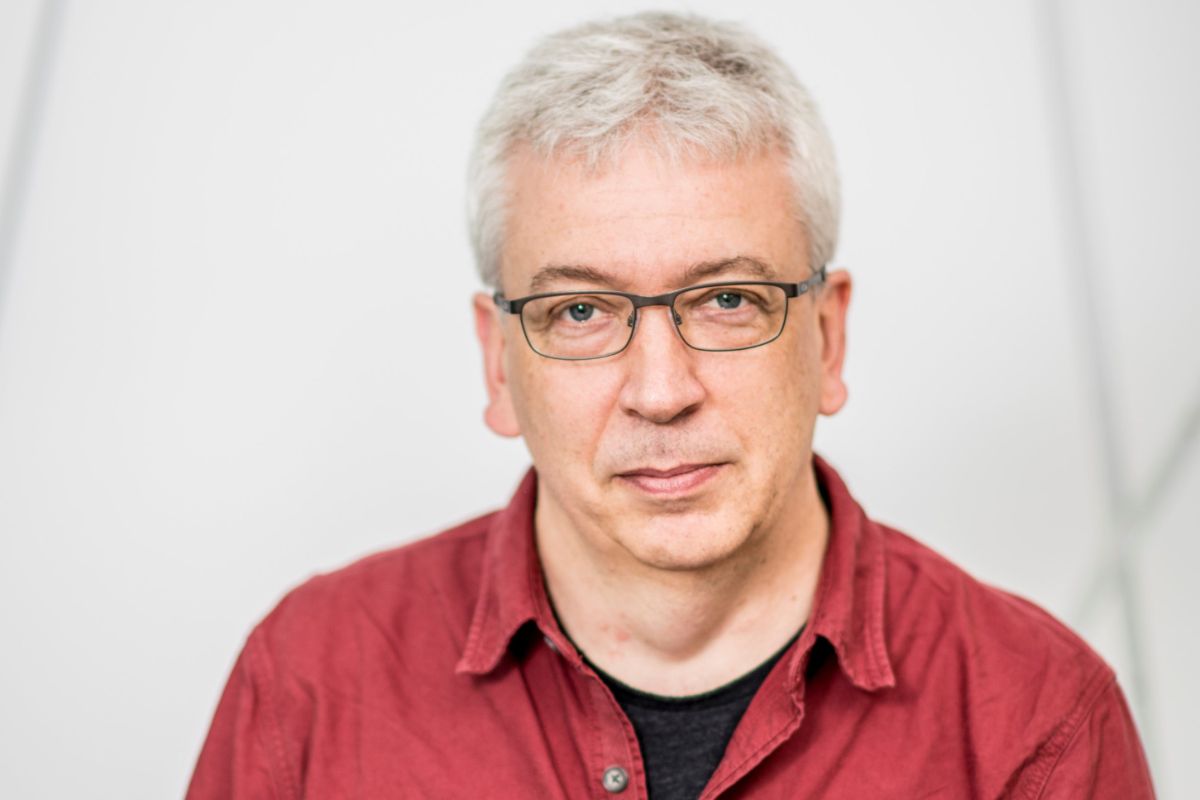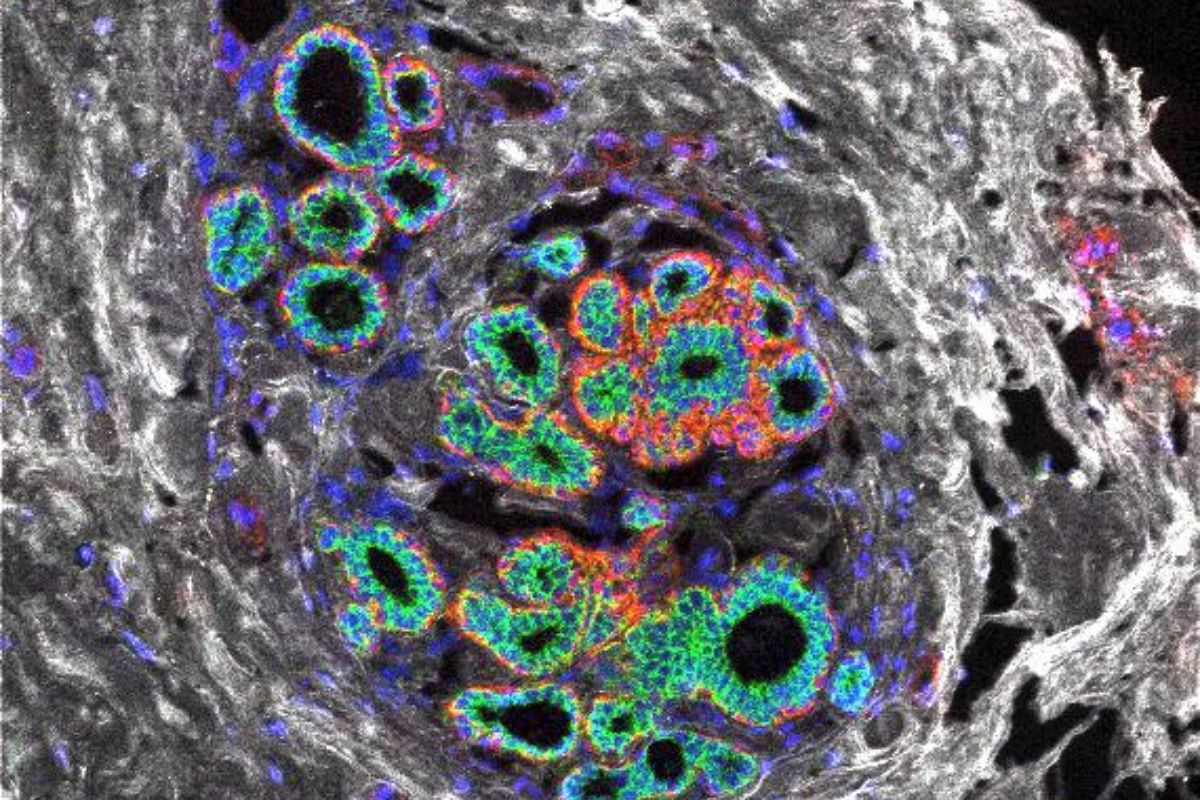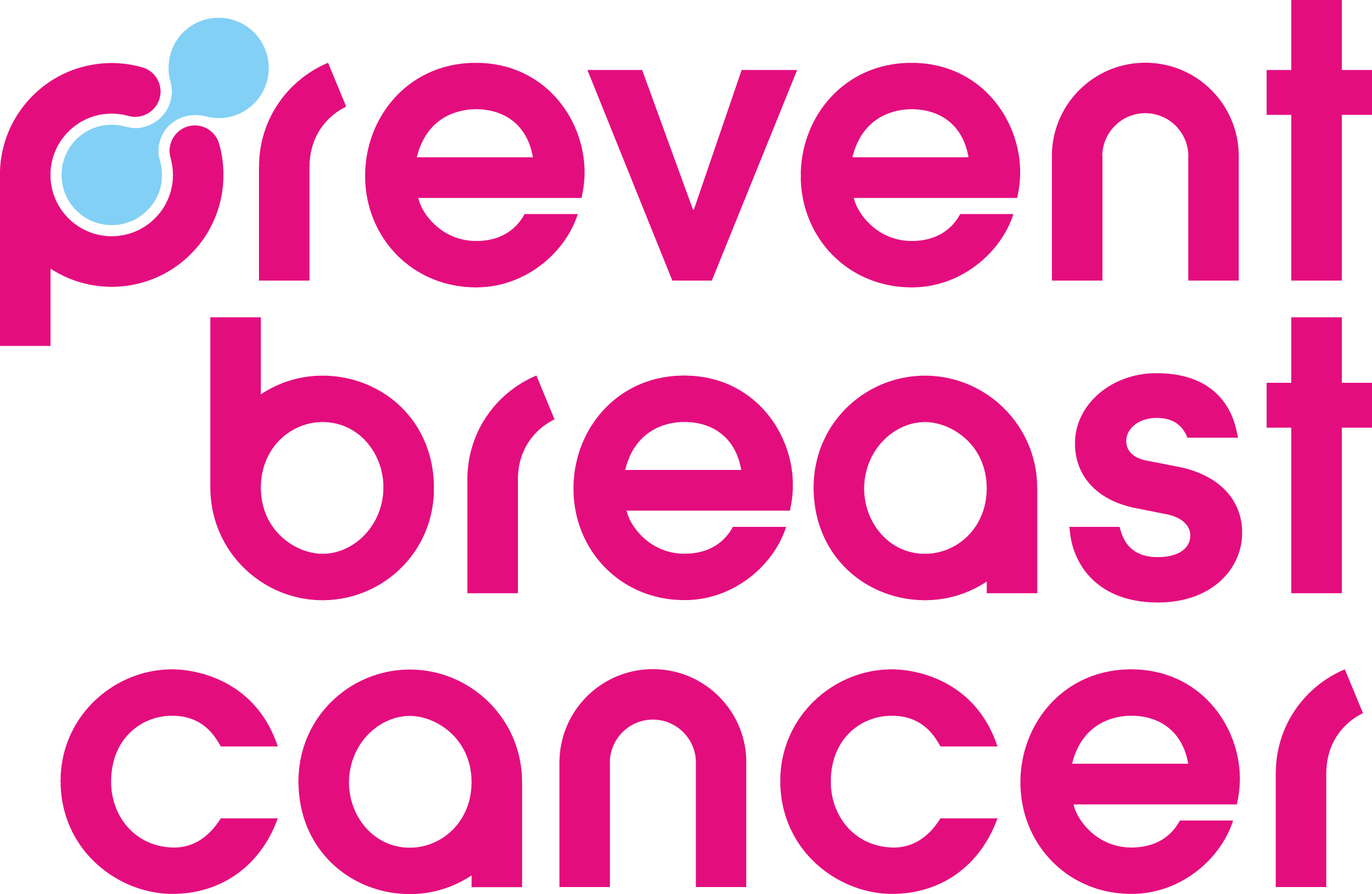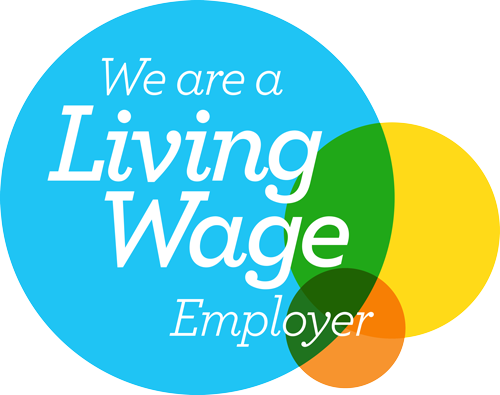Manchester’s monumental effort in the prediction and prevention of breast cancer
Manchester is a key player in the monumental effort to progress research into both the prediction and prevention of breast cancer.
In collaboration between Prevent Breast Cancer and The Manchester Breast Centre, we will hear from some of the key individuals involved, to highlight the important work taking place in Manchester.
Doctor Andrew Gilmore is a senior lecturer at University of Manchester, and in our first blog of an important series, explains what breast cancer actually is and how Manchester research is trying to understand what causes breast cancer and to stop it in its tracks.

What is breast cancer and how does it start?
Cancer is a disease where some of the tiny cells that make up your body start to grow uncontrollably. Normally, the cells that make up our bodies only grow to replace ones that have become old or damaged. In cancer, some cells lose this control, growing when they should not and leading to a tumour.
How do cells change to start cancer?
There are more cells in our body than there are stars in the Milky Way.
In each part of our body, these cells are specialised to do certain jobs, such as nerve cells in our brains, cells in our stomach to help digest food and cells in the breast to make milk for babies. The genes within each cell instruct the cell on how to behave and what to produce.
Breast cancer happens when the instructions that tell the cell what they should do get damaged. The cell with the damaged set of instructions grows out of control and becomes a tumour.
What are the instructions that tell a cell what to do and how do they become damaged?
Every cell in our body uses the same set of instructions, written in the DNA.
DNA is a long chain of chemicals called bases the names of which can be abbreviated to A, C, G and T.
A gene is a long section of these bases. Each gene is part of the instructions to make a cell and to govern how the cell behaves. It is the order of the bases A, C, G and T that gives the cells the information on what to make and how to behave.
There are 20 000 genes in each cell and this collection of all the 20 000 genes is called the genome. Cells in different parts of the body read different bits of the genome and this is how the same genome of the same 20 000 genes can result in different cells such as breast cells, bowel cells, heart cells etc.
Some genes tell cells when to grow and divide into new cells. Cancer starts when these instructions get changed.
So how do the instructions in genes get changed?
Actually, changes in the sequence of the bases in DNA happens in our cells all the time, as the DNA in each cell is very long and easily damaged. The amount of DNA in each of our cells is staggering.
Each one of our cells contains DNA that is just over 3 billion letters long (that is 3 000 000 000). This DNA would stretch two meters long if you took it out of the cell. Consider that the complete works of Shakespeare and the Bible each contain around just 3 million letters! Every time a new cell is made, those 3 billion DNA letters need to be copied to make a new set.
Given the number of letters, mistakes are always made leading to the sequence becoming changed. This is called a mutation. Most of the time these changes are not noticed, and the function of important genes is not changed. If a mutation occurs that changes the way a gene works, then the behaviour of the cell can change for example a cell can begin to grow at the wrong times. A mutated gene that causes cancer is called an oncogene.
A single mutated gene does not by itself cause cancer. Cells accumulate multiple mutations over time. When a cell has several mutations in important genes that they become cancerous. Throughout our lives DNA in our cells is getting damaged and mutated. If the accumulation of these changes in the DNA of certain cells happens to be in certain genes, then that cell may become a cancer cell.
So how do risk factors increase the chance that a cell becomes a cancer cell?
As mentioned above, cells get damage to their DNA all the time but are actually pretty good at repairing their DNA. In fact, cells have genes whose jobs are just to repair DNA (more on this a bit later).
However, these repair genes themselves can make mistakes or just not be able to cope if there is lots of damage. Therefore, things that increase the amount damage to our DNA increase the chance that there will be mutations in important genes to cause cancer.
For some types of cancer, we understand this very well. Smoking puts chemicals that damage DNA directly into the lungs. Skin cancer is more likely if you stay in the sun too long as UV light damages the DNA in skin cells.
What increases DNA damage in breast cells?
One thing is if you have a mutation in the gene BRCA, the so-called Angelina Jolie gene. This gene is one of those involved in repairing damaged DNA. If BRCA1 doesn’t work, your breast cells are less able to make DNA repairs, your cells will get more mutations and so you are more likely to get cancer.
Most women do not have the faulty BRCA gene and the total number of breast cancer cases due to BRCA is low.
What causes most breast cancers is not clear, but there are risk factors that we know increase the chances. The biggest risk factor is age. Other factors are breast density, diet, a family history of breast cancer and reproductive history. However, we do not fully understand how many of these risk factors increase DNA damage and gene mutations. Key aims of research in Manchester are to find out how these risk factors increase DNA damage as well as studying ways to reduce that risk in women.
Research in Manchester
Researchers in Manchester are working to understand how breast cancer starts and how known risk factors, such as breast density and diet, cause the mutations in DNA that lead to cancer.
By understanding how breast cancer starts and what causes it we hope to be able to reduce the risk of it occurring. This is especially important in women at a higher risk.
One way this is being done in Manchester is by looking breast tissue from women who are at a high risk of developing breast cancer. Some women at particularly high-risk of breast cancer participate in trials to test new risk reducing treatments. These new treatments include drugs, or changes in their diet. These women then generously provide tissue biopsies that allow scientists to look for changes in their breasts after they have been on the treatments. By using cutting edge analysis of genetic material and Artificial Intelligence, they can then identify any changes in the breast tissue linked to reduced cancer risk.
Another way to look at how risk factors increase cancer causing mutations is to grow breast cells in the laboratory. Manchester scientists are using sophisticated ways to grow breast cells so that they look and behave as though they are still in the breast. These cells can then be exposed to conditions known to be breast cancer risk factors. The scientists can then examine changes in the cells to see how those risk factors have changed the cells’ DNA .
By understanding how the DNA mutations are caused allows researchers to think of new treatments that reduce that help prevent these mutations and help prevent breast cancer.
About Prevent Breast Cancer
Prevent Breast Cancer is the only UK charity entirely dedicated to the prediction and prevention of breast cancer – we’re committed to freeing the world from the disease altogether. Unlike many cancer charities, we’re focused on preventing, rather than curing. Promoting early diagnosis, screening and lifestyle changes, we believe we can stop the problem before it starts. And being situated at the only breast cancer prevention centre in the UK, we’re right at the front-line in the fight against the disease. Join us today and help us create a future free from breast cancer. If you have any questions or concerns, email us today.
About Prevent Breast Cancer
Prevent Breast Cancer is the only UK charity entirely dedicated to the prediction and prevention of breast cancer – we’re committed to freeing the world from the disease altogether. Unlike many cancer charities, we’re focused on preventing, rather than curing. Promoting early diagnosis, screening and lifestyle changes, we believe we can stop the problem before it starts. And being situated at the only breast cancer prevention centre in the UK, we’re right at the front-line in the fight against the disease. Join us today and help us create a future free from breast cancer. If you have any questions or concerns, email us today.




